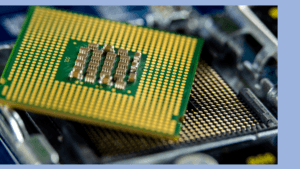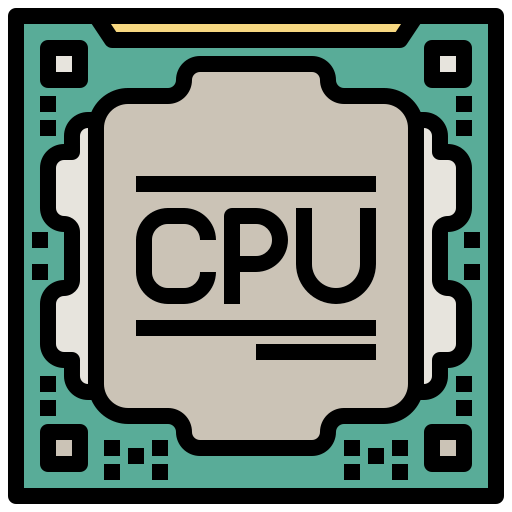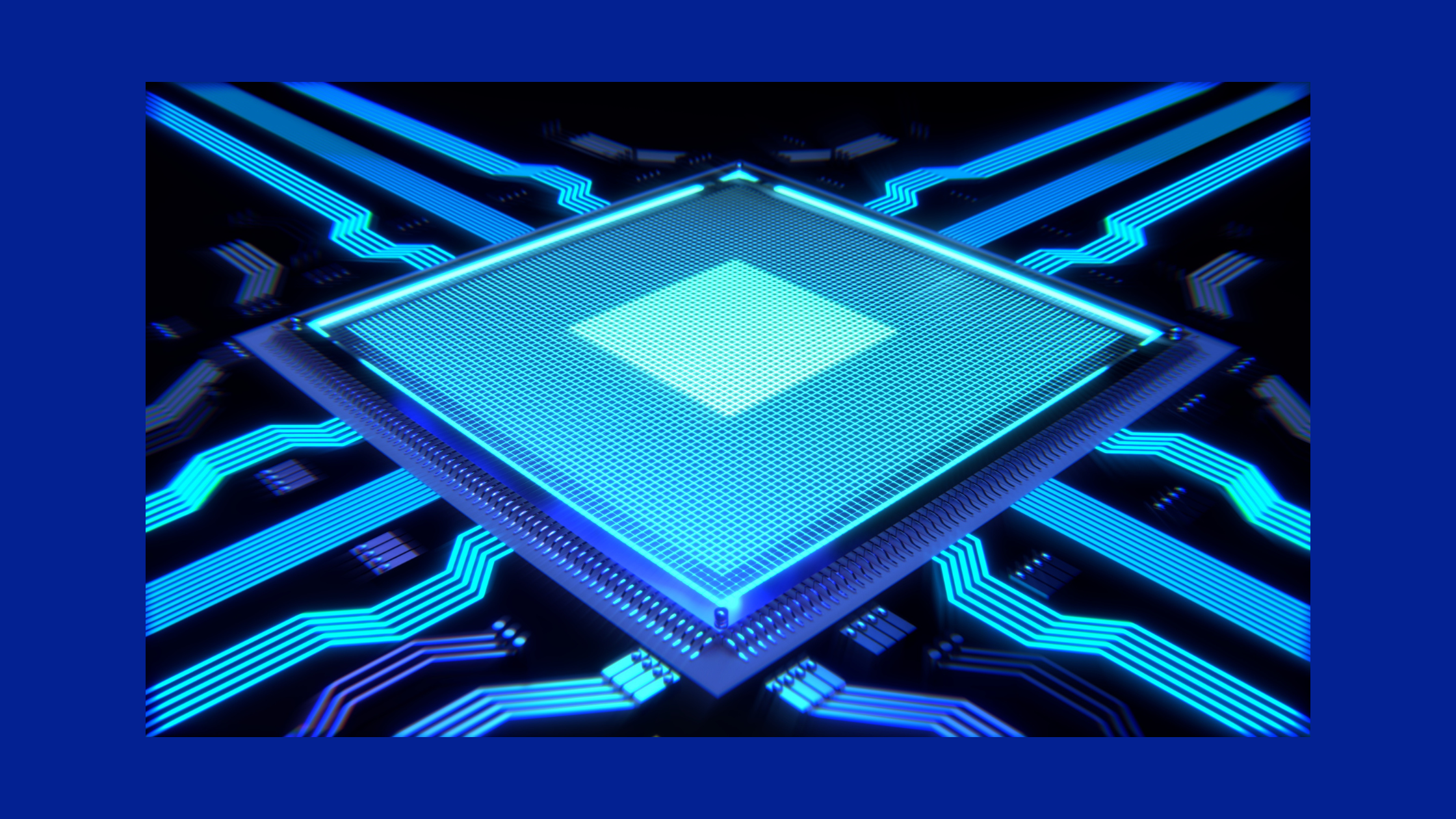CPUs evolved to become smaller, faster, and more energy-efficient. Today’s CPUs are so efficient that they can be found on smartphones, laptops, tablets, and even some cars. Smaller CPUs consume less power and are therefore more energy-efficient.
They also have a smaller footprint, making them more space-efficient. Finally, they are typically faster than their larger counterparts. In this article, you can get everything related to CPU: Why Is Smaller Better?
What Is CPU?
The central processing unit, or CPU, is one of a computer’s most critical and complex parts. The CPU is responsible for running the software on a computer and performing the calculations required by that software.
CPUs are made up of multiple cores, which are the small processors that work together to handle the tasks of the CPU.
Some CPUs also include graphics processors, which allow them to handle the tasks of displaying images and videos.
What Is the Meaning Of Smaller CPUs?
In the world of technology, more minor is always better. It is especially true when it comes to CPUs. A smaller CPU will be faster and more efficient than a larger one.
A smaller CPU has fewer transistors, which means that it can complete tasks faster. Additionally, a smaller CPU will use less power, making it ideal for mobile devices.
While a small CPU may not suit high-powered desktops or servers, it is perfect for laptops, tablets, and smartphones. Many of the latest mobile devices are powered by small CPUs. This trend is likely to continue as processors get smaller and more powerful.

Why Is This Important to have a smaller CPU?
A CPU is a computer’s most vital component. It interprets and carries out the instructions of a computer program. The speed of a CPU is measured in gigahertz (GHz). In general, the faster the CPU, the better the computer’s performance.
However, not all CPUs are created equal. Some CPUs are more powerful than others. It is because they have a higher clock speed or are built using more advanced technology.
One way to make a CPU more powerful is to reduce its size. It is because smaller CPUs can run at faster speeds than larger CPUs.
It is why it is essential to have a smaller CPU. A small CPU can run faster and perform better than a significant CPU.
How Does This Impact the Average User?
According to recent studies, the answer to this question is yes. When a business’s following decreases, it can impact the average user’s perception of that brand.
When a company’s follower count falls below 1,000, the average user is significantly less likely to trust that brand.
It may be because when a company has a small following, it often means that they are not as successful as larger companies.
What Are Some Of The Benefits of a Smaller CPU?
Since their inception, CPUs have come a long way in processing power and speed. While CPUs are now available in all sizes and price ranges, there are certain benefits to using a smaller CPU.
A smaller CPU can be more energy-efficient, providing users with longer battery life or lower electricity bills.
-
Size
When it comes to choosing a processor, size does matter. But not in the way you might think. It’s not the number of cores or threads that make a processor powerful; it’s the size of the die.
A smaller die means that the transistors can be packed more tightly, resulting in a higher transistor density. This increased density leads to improved performance and efficiency.
Intel has been leading the way in miniaturizing its processors. Their 14nm process has produced processors with fewer transistors while still maintaining high-performance levels.
AMD is quickly catching up with their own 14nm process, and soon both companies will be producing processors with transistor counts in the billions. A smaller die also allows for more relaxed and quieter processors.
-
Speed
In personal computing, there is a never-ending battle between size and speed. Manufacturers try to cram more and more processing power into smaller and smaller devices, while consumers demand ever-faster machines.
Recent advances in CPU design have made this possible. With a small CPU, you can get the benefits of speed and portability without sacrificing performance.
Small CPUs are perfect for everyday tasks like browsing the web, checking email, and streaming video. They also make great second laptops or desktops for home entertainment centers.
-
Power Consumption
Microprocessors are becoming faster and more powerful with each new generation, but they are also becoming increasingly power hungry.
It is a significant concern for laptop users who can’t afford to have their machines constantly draining their batteries.
There is, however, a solution to this problem: using a smaller CPU. A processor designed for low power consumption can offer significant benefits in terms of battery life.
For example, the Intel Atom processor uses up to 50% less power than conventional processors.
It doesn’t mean that you have to sacrifice performance to save battery life. The Atom processor is relatively fast and can easily handle most day-to-day tasks.
-
Price
The price of a computer CPU is determined by its size. A smaller CPU is less expensive to produce than a more considerable CPU.
This benefit is passed along to the consumer at lower prices. In addition, a smaller CPU uses less power and generates less heat, making it more efficient. These benefits make smaller CPUs a cost-effective choice for consumers.
-
Longer Battery Life
Laptops are becoming increasingly popular as a replacement for traditional desktop computers. It is due, in part, to the longer battery life that laptops offer. A smaller CPU can be one factor that contributes to longer battery life.
A laptop’s CPU is its central processing unit. The more powerful the CPU, the more energy it consumes. It can shorten a laptop’s battery life. A smaller CPU uses less energy and can prolong a laptop’s battery life.
Some laptops have two CPUs: a large, power-hungry one for heavy-duty tasks and a small, energy-efficient one for basic web browsing and word processing.
When the laptop is not performing demanding tasks, the small CPU takes over, saving energy and extending battery life.
-
Lower Electricity Bills
Electricity bills have been rising for years and show no sign of stopping.
- One way to combat this is to buy a smaller CPU. Smaller CPUs use less electricity, leading to significant savings on your monthly bill.
- Another benefit of using a smaller CPU is that it runs cooler. It means your computer will not have to work as hard to stay calm, and you’ll likely see a reduction in noise levels.
- Finally, smaller CPUs are typically less expensive than their larger counterparts. If you’re looking for a way to save money on your electricity bill, a smaller CPU is good.
What Are the Disadvantages of Smaller CPUs?
One disadvantage of using a smaller CPU is that it can often be less powerful and have fewer capabilities than larger CPUs.
It can limit what you can do with your computer and the tasks it can perform. Additionally, smaller CPUs can often be more expensive than larger ones.
Conclusion:
In conclusion, it is evident that CPU size matters and that smaller CPUs are better. It is because they are more efficient and use less power.
They also tend to be faster and more reliable. It is advisable to choose a smaller CPU whenever possible for these reasons. In this article, you can get all the information related to CPU: Why Is Smaller Better?

